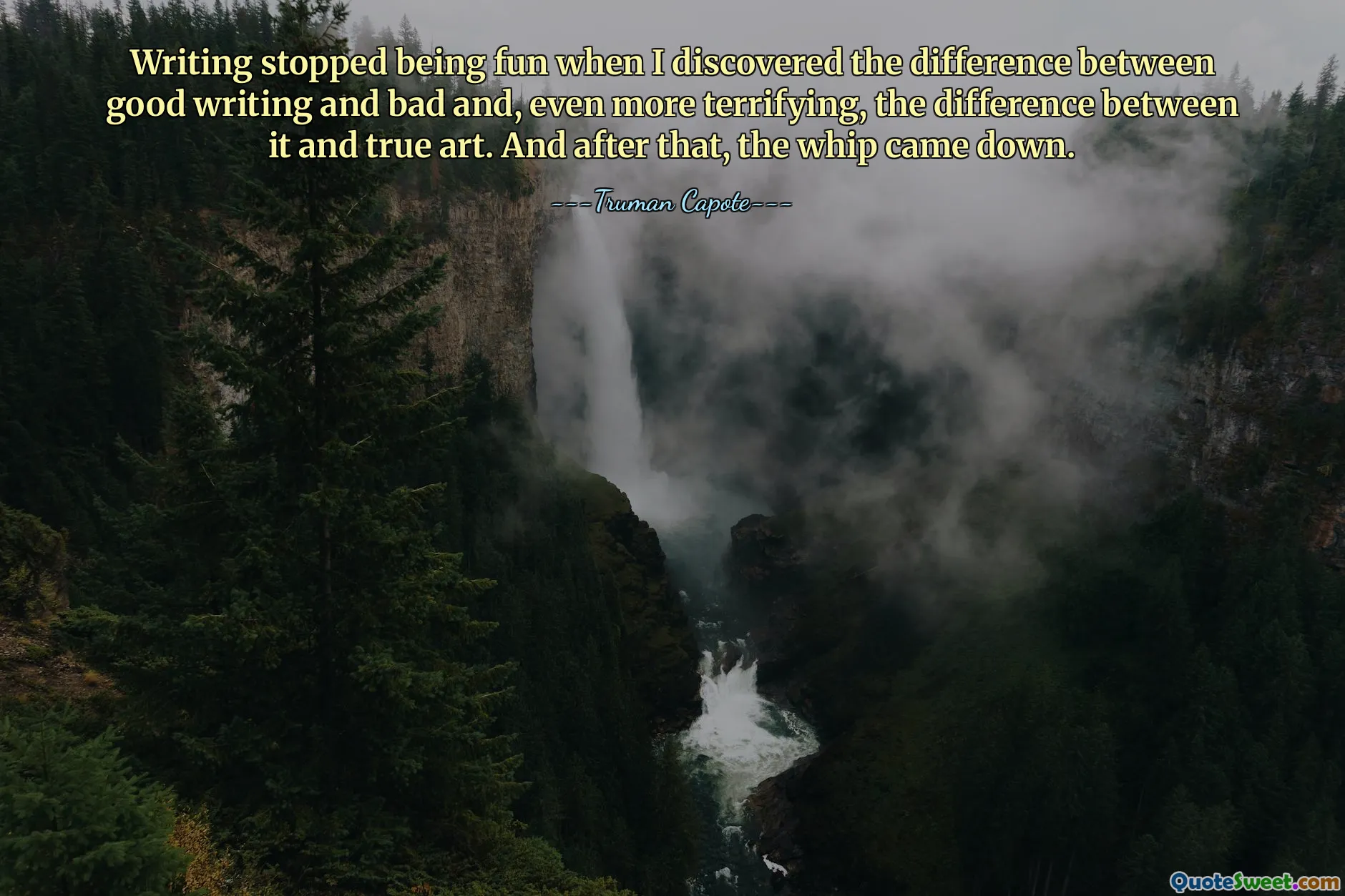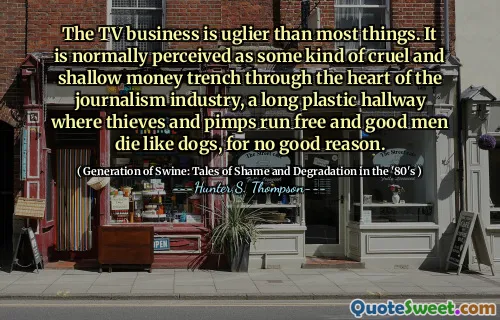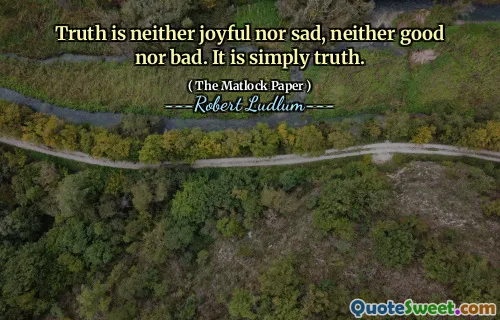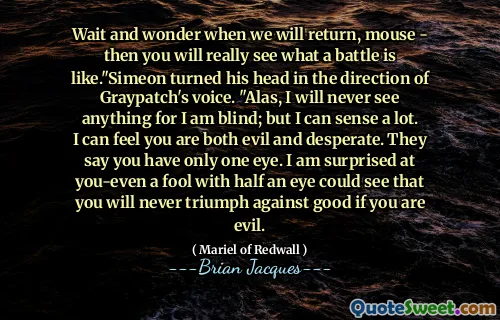
Writing stopped being fun when I discovered the difference between good writing and bad and, even more terrifying, the difference between it and true art. And after that, the whip came down.
---Truman Capote---
This quote captures a profound and often overlooked reality of the creative process. Initially, writing can be a liberating and joyful act—a form of self-expression that feels instinctive and fulfilling. However, as one advances and begins to recognize nuances such as quality versus mediocrity, the process can transform from a purely pleasurable activity into something laden with self-criticism and high standards. Discovering the difference between merely good writing and genuine art can act as a double-edged sword. On one hand, it elevates a writer's work, pushing them toward mastery; on the other, it introduces doubt, perfectionism, and destructive self-scrutiny. For many artists, this awareness can diminish their initial joy, turning writing into a battleground of expectation and reality.
Furthermore, discerning true art from superficial or commercial success adds another layer of complexity. True art demands vulnerability, sincerity, and technical mastery—elements that can feel daunting once recognized. The sudden realization of these criteria might make creation feel more like a burden than an act of spontaneous inspiration. The phrase ‘the whip came down’ metaphorically suggests that this newfound knowledge can be punishing, suppressing the writer's natural impulse and perhaps instilling fear or a sense of obligation rather than freedom. This reflects a common journey in many creative endeavors—where the pursuit of excellence can sometimes overshadow the pure, unadulterated joy of creation, transforming it into a sometimes painful pursuit of perfection.
Nonetheless, this awareness also has the potential for growth. It encourages writers to refine their craft with intention and authenticity, aiming not just for good work, but for meaningful art. This transition, although painful at times, is often essential in the journey from amateurism to mastery and authenticity, highlighting the complex relationship between passion and discipline in the pursuit of artistic excellence.









